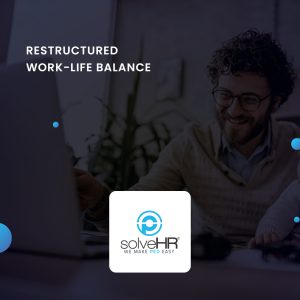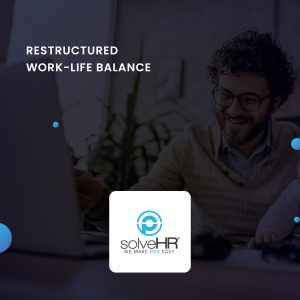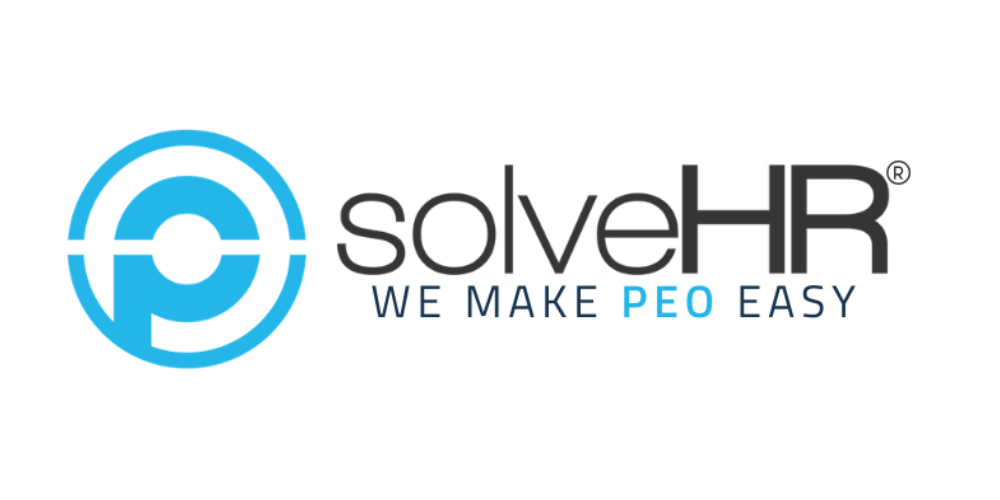- 12/24/2021
- Posted by: Adrian Sosa
- Category: Uncategorized
The pandemic changed everything. From education and schooling to shopping and communicating with others, everything has found its way online and subsequently changed the way we think and feel about how we used to do things.
Over the past two years, the pandemic has forced us to reevaluate our behavior and lifestyles, whether that be at home or our personal lives. The pandemic put life, work, death, love, and all the things we take for granted into perspective and has created a shift in priorities for the general public. This includes the workforce who now value their time and effort differently and are seeking to create a better work-life balance.
We live in a new world order where workers found the need to put themselves first. How does this affect companies? How can companies find ways to keep their workforce – with new ideas about their standards of living – happy? HR trends post COVID are not the same as they were before life as we knew changed. Here are some trends that are likely to restructure work when the pandemic recedes.
Remote and Hybrid Work Environments

One of the greatest realizations that the pandemic brought was the realization that most of what we do in person, could be done just as well if not better online. Remote work can be accomplished without losing productivity and most workforces are set to continue working online between 3 and 5 days a week.
This translates to 4 or 5 times more remote work which will result in companies and large businesses shifting their offices out of large cities and into the suburbs. This is however not to say that everything is done best online. Some activities such as negotiations, the orientation of new employees, brainstorming, etc are done better in-person while interacting with your peers.
This remainder of work online will result in two things. First, office spaces will require less space for their offices since fewer employees will come in on a day-to-day basis. This in turn will reduce the demand for restaurants located in predominant work areas and transport taking workers to and from their offices. Second, business travel will take a hit. Now that we have given in to the power of video conferencing and realized how convenient it is, companies are likely to retain the concept of conference calls instead of spending money to send their employees out. The HR trends post COVID are projected to grow significantly in the coming years.
Companies Will Adopt AI and Automation

With the requirement of people staying 6 feet apart during the pandemic, AI and robots came in handy doing routine jobs. Since this solution is cost-effective for companies, in a post pandemic era, companies are continuing to employ AI and robots to do routine tasks. This, however, will change the share of work human beings have. Workspaces where human interaction was previously required such as grocery stores or call centers will now see a shift in the workforce from human beings to machinery. Places, where human interactions are high, are to see these changes more intensely.
Sadly, this means that a large number of low-wage workers will lose their jobs and will have to find new employment or new skills to find a way to keep themselves employed. Across 8 countries – the United States, Germany, Japan, France, Spain, the United Kingdom, China, and India – it is estimated that 1 in 16 members of the workforce may need to transition into different jobs post-COVID.
Increased Importance Given to Mental Health and Overall Wellbeing
This is perhaps the biggest HR trend post-COVID that work environments will see. The pandemic has shined a light on human well-being and mental health and has ranked it higher on the list of priorities for workers.
From an HR point of view, companies must now not only make sure that their customers are happy but give their employees the same level of importance and put their well-being above all else. Happy employees mean an efficient and productive workforce. This is done by keeping their employees free from stress by taking care of little things that can help workers be a lot more productive. Taking care of childcare problems, giving them adequate time off for a healthy work/life balance, providing the right technology for their jobs – are all ways that companies can ensure that their employees can get the best out of their workdays.
Additionally, something that is sometimes overlooked is how much a worker feels appreciated. With a work-from-home setting, it can often feel like workers are separated from their work environments and not making much of a contribution. This is something that if fixed – by reminding employees of the good work they have put in – can boost morale and overall productivity.
Fostering Inclusion and Belonging
With a high probability of work environments remaining remote or shifting to a hybrid of in-person and remote work environments, employees must understand each other and trust each other so they can work together to fulfill company goals.
This is where HR comes in to foster environments where employees feel like they can lean on each other and support each other. Especially with employees that are working remotely, the more valued employees are made to feel, the more productive they tend to be. Teams need to be brought together and healthy relationships should be established between employees and their work such that everyone contributes towards the achievement of the goals of the company. This kind of sense of belonging has incredible long-term effects on everything from morale to turnover.
These trends haven’t been created by the pandemic. They are changes that have been slowly coming about that have now been set on the fast track by the pandemic. 259 million worldwide deaths later, new HR trends post COVID are trends that have been brought by a serious inspection by workers of their lives now that we know life is more valuable than we understood. The pandemic has found a way to restructure our minds and the economy. Nothing can ever be the same again, not the way we live and certainly not the way we work.

